
CARING
CARING
A Relational Approach to Ethics
&
Moral Education
SECOND EDITION, UPDATED
 NEL NODDINGS
NEL NODDINGS

UNIVERSITY OF CALIFORNIA PRESS
BerkeleyLos AngelesLondon
University of California Press, one of the most distinguished university presses in the United States, enriches lives around the world by advancing scholarship in the humanities, social sciences, and natural sciences. Its activities are supported by the UC Press Foundation and by philanthropic contributions from individuals and institutions. For more information, visit www.ucpress.edu.
University of California Press
Berkeley and Los Angeles, California
University of California Press, Ltd.
London, England
First Paperback Printing 1986
1984, 2003, 2013 by The Regents of the University of California
ISBN 978-0-520-27570-6
eISBN 9780520957343
Library of Congress Cataloging-in-Publication Data available upon request
Manufactured in the United States of America
22 21 20 19 18 17 16 15 14 13
10 9 8 7 6 5 4 3 2 1
In keeping with a commitment to support environmentally responsible and sustainable printing practices, UC Press has printed this book on Natures Natural, a fiber that contains 30% post-consumer waste and meets the minimum requirements of ANSI / NISO Z 39.48-1992 ( R 1997) ( Permanence of Paper ).
To my husband, Jim, who has never stopped caring.
CONTENTS
ACKNOWLEDGMENTS
A MONG THOSE WHO helped greatly in the initial stages of this project by making constructive suggestions on my first caring papers are Nick Burbules, William Doll, Bruce Fuller, Brian Hill, William Pinar, Mary Anne Raywid, Gerald Reagan, and, in general, the California Association for Philosophy of Education. For steady encouragement throughout the process, I would like to thank Elliot Eisner, Julius Moravcsik, and David Tyack. For careful reading of the final draft and useful editorial comments, I thank Donald Arnstine, Shirley Warren, and Walter Rosenauer. For constant support and encouragement, I thank John Miles, Karen Reeds, and Laurie Taylor of the University of California Press. Finally, very special thanks are given to Denis Phillips, who read early drafts with meticulous care and offered many valuable criticisms.
I would also like to thank Margaret Rausch, for her efficient typing, and my secretary, Jane Wassam, for her typically intelligent handling of details, corrections, and correspondence.
PREFACE TO THE 2013 EDITION
T he first edition of Caring was published in 1984. In the intervening years, interest in the ethics of care has grown substantially. On my own library shelf, there are now books and articles on care theory in philosophy, psychology, religion, bioethics, library science, peace studies, art, anthropology, education, and business. Some of the initial fears about caring have been allayed; for example, few critics now worry that attention to caring as a way of life will send women back to the kitchen and the nursery. But some genuine concerns remain, and a few important misunderstandings and differences of opinion have grown over time. In this preface, I will address some of these misunderstandings and attempt to respond to critics. In an afterword, I suggest a program for future work on care ethics.
One important complaintwith which I heartily sympathizefocuses on the former subtitle of Caring: A Feminine Approach to Ethics and Moral Education. Hardly anyone has reacted positively to the word feminine here. In using it, I wanted to acknowledge the roots of caring in womens experience, but using a womans approach rather than feminine risked the complete loss of male readers. With feminine, at least a few male Jungians wrote to say that they felt included. I think critics are right, however, to point out that the connotations of feminine are off-putting and do not capture what I intended to convey. Relational is a better word. Virtually all care theorists make the relation more fundamental than the individual. Virginia Held comments: The ethics of care... conceptualizes persons as deeply affected by, and involved in, relations with others; to many care theorists persons are at least partly constituted by their social ties. The ethics of care... does not assume that relations relevant for morality have been entered into voluntarily by free and equal individuals as do dominant moral theories.
Persons as individuals are formed in relation. I do not, however, want to lose the centrality of womens experience in care ethics, and Ive tried to make the connection more explicit in both Starting at Home: Caring and Social Policy and The Maternal Factor: Two Paths to Morality.
I have called the language used in Caring the language of the mother, as
But the emphasis on taking care has led to some misunderstanding and confusion. Briefly, the problem is that some proponents of care ethics have equated caring and caregiving. The ethics of care is a rapidly developing normative moral theory. It is concerned with how, in general, we should meet and treat one anotherwith how to establish, maintain, and enhance caring relations. Caregiving is an important element in care ethics, but, as a set of activities or occupation, it can be done with or without caring. We all know of cases in which persons assigned to provide care have performed the tasks of caregiving without conveying care. Still, I have argued that well-supervised practice in caregiving may act as an incubator for the development of caring. Thus, it is important for the young, in addition to being cared for, to see and assist in the genuine caring done by adults.
Another important source of confusion is the distinction I have made between caring-for and caring-about. Caring-for describes an encounter or set of encounters characterized by direct attention and response. It requires the establishment of a caring relation, person-to-person contact of some sort. Caring-about expresses some concern but does not guarantee a response to one who needs care. We are all familiar with an array of scenarios that might be called caring-about. I might, for example, care about civilians living in fear during civil strife in, say, Syria, but I may not follow up on my expressed concern. Or I may follow up with a small gift to a charitable organization. Edging closer to caring-for, I may check on the credentials of the organization to find out how my contribution is spent. The point is that we cannot care-for everyone; we are limited by time, resources, and space. My comment that we have no obligation to care-for the starving children of Africa generated outrage in many readers. But we cannot be obligated to do the impossible, and it is clearly impossible to establish a caring relation with everyone in the world.
One critic, Barbara Houston, said that when she read my comment about our having no obligation to care for the starving children of Africa, her urge was to throw the book across the room. She explained her outrage in a publication addressed to me: I was incensed that someone should deny an obvious obligation. Upon cooler reflection I realized you were drawing a useful distinction
The distinction recognized by Houston, a generous critic, is important when we discuss the function of institutions and large organizations in supporting caring. A school, for example, cannot care-for directly, but it can work toward establishing an environment in which caring-for can flourish. The same is true of international organizations and nations. One nation cannot itself care-for another, but it can encourage an environment in which groups meet face-to-face and thereby create opportunities for genuine caring-for. Ill say more about this in the afterword, where well consider further work that needs to be done in care ethics. I think critics are right when they advise that much more must be said on caring-about.
Next page
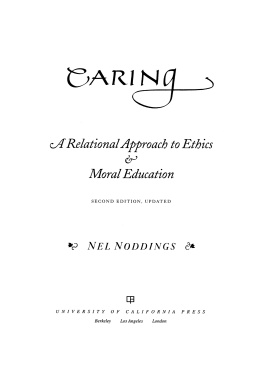

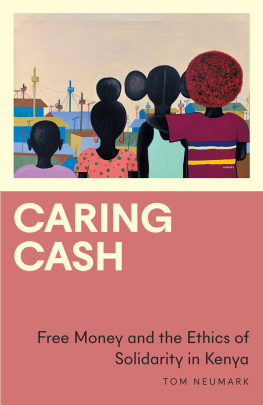
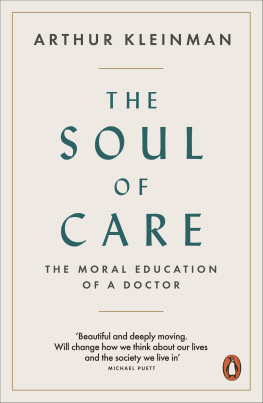
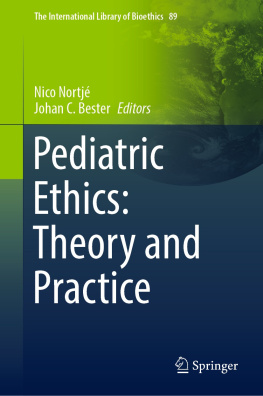
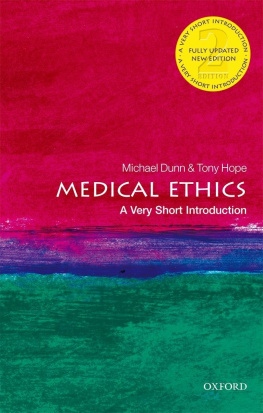



 NEL NODDINGS
NEL NODDINGS
